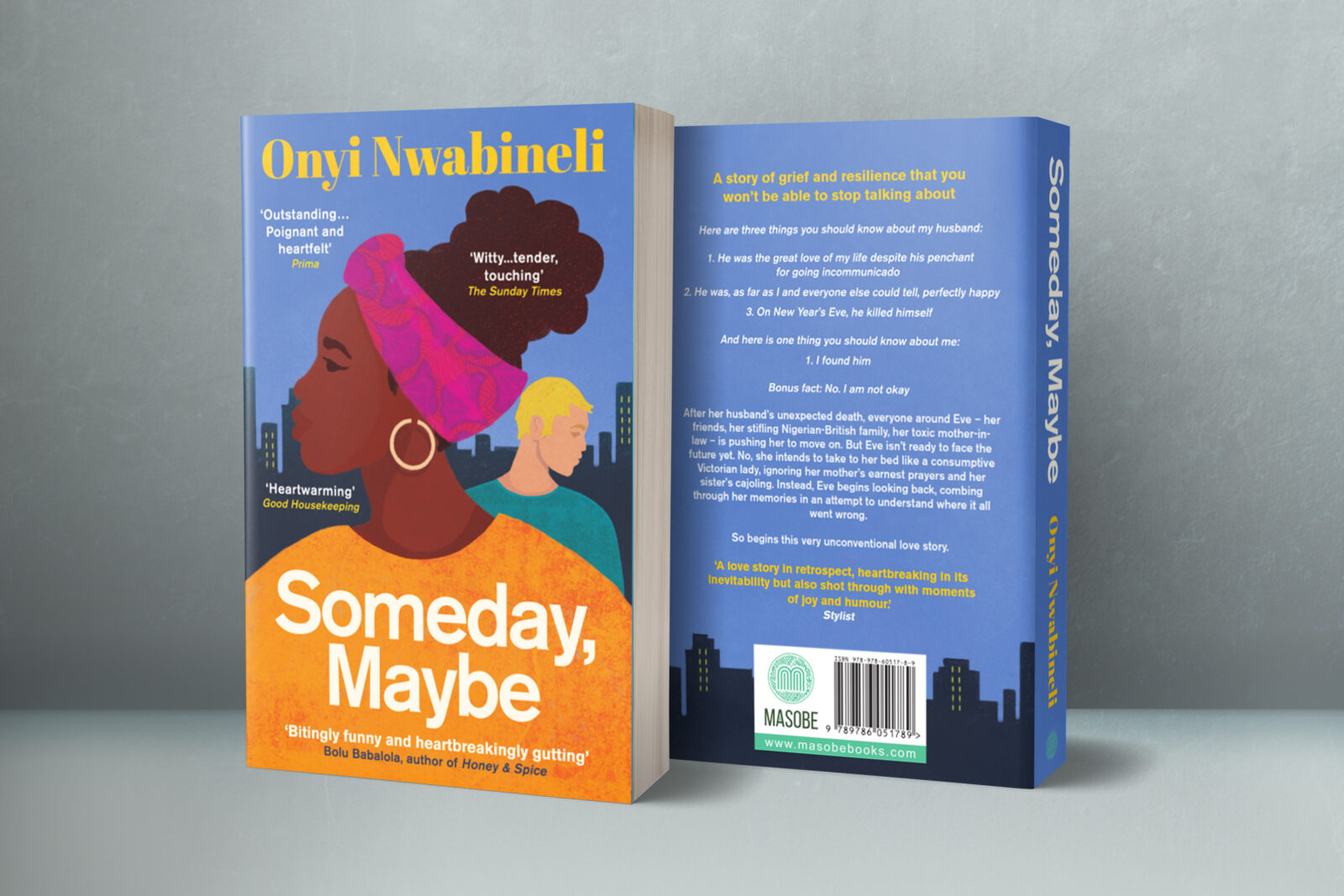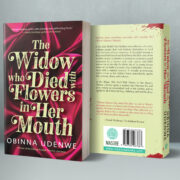
WRITTEN BY EGHE IDADA
To lose a man—your ultimate love, your husband, your partner in life—is a wound without words. And to lose him so young, when the map of your shared future is still rolled out before you, children not yet born, homes not yet built, trips not yet taken, arguments not yet had, love not yet exhausted, it feels like a theft beyond comprehension. Where does one even begin to speak of that kind of pain? Where does life go when it has been so violently emptied?
Why does the world not stop, not collapse with you, not scream into the void beside you? Why does everyone else get to hold onto their forever, while yours is torn away? Why were you not enough for him to stay? Why couldn’t he trust you with his darkest battles? So many whys, circling endlessly. So many desperate wishes to rewind—to reach back to just before, even a heartbeat before. Maybe then you could change it. Maybe then he wouldn’t leave you behind.
But he did. He isn’t sleeping. He won’t wake up. He is gone. And you are here—alone, gasping for breath in a world that feels wrong without him. Alone in the after. Alone in the now.
Reading this, I felt raw. I felt hollowed out. I caught
myself trembling at the thought: What if it were me?
What if my love, my anchor, my everything, were
suddenly gone? God forbid, in Jesus’ name, abeg.
The book itself unfolds in four parts—Home, Work, Away, and Home Again—anchored by a prologue that sets everything ablaze: a death, but not just any death. A suicide. Quentin, the devoted husband, the man who seemed to light up every room, discovered by his wife, Eve, in his studio, his body collapsed in a pool of his own blood. And from there, life unravels. The spiral is steep, merciless, and relentless.
At its core, the story is about Eve’s grief: heavy, unyielding, and particular to the violent way her husband chose to leave. It is grief that floods every page, grief that weighs down every breath. And yet, amidst the darkness, the author threads in moments of levity—fragments of humor, echoes of romance between Eve and Quentin in flashbacks—that only serve to sharpen the ache. They remind us of what was, of what should still be, and of how cruel it is that such beauty can be snatched away.
Reading this, I felt raw. I felt hollowed out. I caught myself trembling at the thought: What if it were me? What if my love, my anchor, my everything, were suddenly gone? God forbid, in Jesus’ name, abeg.
“Grief is not neat. Pain is not dignified. Both are ugly, visceral things. They rip holes through you and burst forth when they see fit. They are constant, controlling companions, and if they don’t destroy you or your relationships with others, they certainly go a long way to damaging you, disfiguring you internally and altering your existence so much so that when you are lucid enough to look at yourself, at your life, you are astounded (and often disgusted) by what you find staring back at you.”
This is not grief witnessed from a distance. This is
grief lived step by excruciating step—through tears
that never end, screams that echo in silence, pills
swallowed in desperation, showers left untaken,
family ignored yet unbroken.
The cast of characters is drawn with tenderness and depth. Eve’s parents embody the truth that parenting never ends—you will always fight for your child, no matter how grown they are. Bee, the loyal best friend, is both comfort and sharp mirror, unafraid to tell Eve truths she cannot bear to face. Gloria, the pragmatic older sister, shoulders burdens without pause, organizing, protecting, fighting—for Eve and against her if necessary. And then there is Aspen, the venomous mother-in-law, whose presence adds fresh wounds to already open flesh.
But the most powerful thread is family—the way they rally around Eve in her brokenness. A mother who cooks and cleans when Eve cannot lift a hand. A father who, exhausted from night shifts as a neurosurgeon, still sits with his daughter until she swallows her pills and falls asleep. A sister juggling her own storm of responsibilities yet standing tall as Eve’s advocate and shield. A brother, steady and kind, guiding her toward the one small thing that sparks the beginnings of healing.
This is not grief witnessed from a distance. This is grief lived step by excruciating step—through tears that never end, screams that echo in silence, pills swallowed in desperation, showers left untaken, family ignored yet unbroken. The book drags you under, makes you sit in the dark with Eve, and dares you to stay there until the faintest glimmer of light flickers again.
Someday, Maybe Eve will find her way back to joy. Someday, Maybe the crushing weight will ease.
“Blessed are they that mourn: for they shall be comforted.” —Matthew 5:4

Thank you for this!! I read the book a while back, but now, reading this, after losing my friend, after her leaving her husband and 2 small kids behind, it meant so much more. I will share this post with her husband!! It has been crushing grieving her, but someday, maybe, we will be okay.